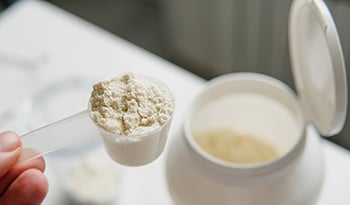Best Male Fertility Supplements
Sperm health is an important aspect of male fertility, directly impacting the ability to create healthy pregnancies. However, the significance of sperm health extends far beyond reproduction. Healthy sperm are indicative of a well-functioning reproductive system, which in turn reflects an individual’s overall health status. Poor sperm health can be a sign of underlying health issues, including hormonal imbalances, oxidative stress, and chronic illnesses. Maintaining optimal sperm health is essential not just for those looking to start a family but for all men wanting to optimize their overall health.
Recent research shows that sperm counts and quality have decreased significantly over the past few decades. This trend is alarming because healthy sperm are crucial not only for fertility but also as an indicator of a man’s overall health. Factors such as lifestyle choices, environmental toxins, and even dietary habits have been linked to this decline, highlighting the complex relationship between our environment and reproductive health.
Why Is Sperm Health Important For Male Fertility?
Sperm production occurs in the testes and involves a complex process of cell division and maturation. It takes about three months for sperm to develop and mature. During this time, sperm cells undergo many changes, including the development of a tail for mobility and a head containing genetic material (DNA) necessary for fertilization.
Healthy sperm are necessary for conception because they must be motile enough to reach and penetrate the egg and carry intact DNA to ensure successful fertilization and healthy embryo development. Any abnormalities in sperm production or maturation can impair fertility and reduce the chances of conception.
Sperm health is evaluated through several key parameters:
- Count: Sperm count refers to the total number of sperm present in a semen sample, with higher counts generally indicating better fertility potential.
- Motility: Sperm motility measures the ability of sperm to move effectively towards an egg.
- Morphology: Morphology refers to the shape and structure of sperm, with a higher percentage of normally shaped sperm correlating with better fertility.
- Concentration: Concentration refers to the number of sperm per milliliter of semen, providing insight into the density of sperm within the sample.
Together, these parameters offer a comprehensive view of sperm health and potential fertility.
Natural Ways to Improve Male Fertility
Various factors can influence male fertility and sperm quality, including nutrition, physical activity, stress levels, and exposure to environmental pollutants. By paying attention to these factors and making necessary lifestyle changes, men can improve their sperm health and their general health.
Lifestyle Choices Affect Male Fertility
Lifestyle choices have a significant influence on male fertility and sperm health. The following lifestyle choices not only impair sperm health but also contribute to broader health issues:
- Sedentary Lifestyle: A sedentary lifestyle can lead to hormonal and metabolic issues, which are linked to lower sperm count and poor sperm motility.
- Smoking and Vaping: Smoking and vaping introduce harmful chemicals into the body that can damage sperm DNA and decrease overall sperm quality.
- Drinking Alcohol: Excessive alcohol intake disrupts hormone levels and can lead to oxidative stress, both of which negatively impact sperm production and function.
Environmental Toxins Impact Fertility
Environmental toxins, including phthalates, parabens, pesticides, and electromagnetic fields (EMFs), have been shown to adversely affect sperm health. Phthalates and parabens, commonly found in plastics and personal care products, can disrupt endocrine function, leading to hormonal imbalances that impair sperm production and quality. Pesticides, often present in non-organic foods, contain chemicals that can induce oxidative stress and damage the DNA in sperm. Additionally, exposure to EMFs from electronic devices has been linked to reduced sperm motility and increased DNA damage in sperm.
These environmental exposures can accumulate in the body over time, contributing to decreased sperm health and overall fertility. Limiting your exposure to these chemicals by choosing organic foods and personal care products with natural ingredients may help improve sperm health.
Foods for Optimal Sperm Health
The foods you eat play a crucial role in sperm health, with diets rich in antioxidants and healthy fats being particularly beneficial. Antioxidants, found abundantly in fruits and vegetables, help combat oxidative stress, which can damage sperm DNA and reduce sperm quality.
Berries, such as blueberries and strawberries, are packed with antioxidants like vitamin C and flavonoids, which protect sperm from oxidative damage. Watermelon contains lycopene, a powerful antioxidant shown to improve sperm motility and reduce DNA fragmentation. Additionally, fatty fish like salmon and mackerel are rich in omega-3 fatty acids, which are essential for maintaining the integrity of sperm cell membranes and improving overall sperm quality.
Incorporating these nutrient-dense foods into your diet can significantly enhance sperm health and boost fertility.
Best Supplements for Male Fertility
Vitamins, minerals, amino acids, herbs, and antioxidant compounds offer a targeted approach to enhancing male fertility by addressing nutritional deficiencies and promoting optimal sperm function. By providing essential nutrients that may be lacking in the diet in sufficient quantities, supplements can help improve sperm health and increase the chances of successful conception.
As more men seek natural ways to boost their reproductive health, understanding the role and benefits of these supplements becomes increasingly important. Research on natural supplements for improving sperm health has shown improvement in various markers of sperm health, including count, motility, morphology, and DNA fragmentation. It is important to check your individual sperm levels with a healthcare provider before starting any new herbs or supplements.
CoQ10
Coenzyme Q10 (CoQ10) is a powerful antioxidant naturally produced in the body that plays a crucial role in cell energy production. It helps protect sperm from oxidative damage and has been shown to improve sperm motility and overall quality.
A 2013 systematic review and meta-analysis found that CoQ10 supplementation improved both sperm count and motility. However, other studies have found that while CoQ10 improves markers of oxidative stress, it may not improve sperm markers on its own.
NAC
N-acetylcysteine (NAC) is a supplement form of the amino acid cysteine that acts as a powerful antioxidant in the body. It helps boost glutathione levels, a critical antioxidant that protects cells from oxidative damage.
NAC has been shown to improve sperm quality and reduce oxidative stress in the reproductive system. A 2021 systematic review found that oral supplementation of NAC was associated with improved sperm concentration, motility, and morphology.
Carnitine
Carnitine is a naturally occurring compound that plays a crucial role in energy production by transporting fatty acids into mitochondria for metabolism. It supports cardiovascular and metabolic health, as well as sperm health. Carnitine is found in high levels in semen. It works to enhance sperm motility and protect against oxidative damage, making it a valuable supplement for male fertility.
Studies suggest carnitine supplementation effectively improves sperm count, motility, and morphology. A recent study from 2019 also found that pregnancies using assisted reproductive technology were higher for couples when men took carnitine supplements.
Vitamin C
Vitamin C is a water-soluble vitamin that acts as a potent antioxidant in the body. It helps protect sperm cells from oxidative stress, improves sperm motility, and enhances overall sperm quality, making it an essential nutrient for male reproductive health.
Studies show lower levels of vitamin C in semen correlate with poorer sperm morphology. Other studies suggest that vitamin C supplementation improves sperm parameters, both on its own and in combination with other antioxidants like vitamin E, selenium, and zinc.
Vitamin D
Vitamin D is a fat-soluble vitamin synthesized in the skin in response to sunlight exposure and obtained through dietary sources like fatty fish and fortified foods and supplements. It plays a crucial role in reproductive health by regulating hormone levels, supporting sperm production, and promoting overall fertility in men. Low vitamin D levels are associated with decreased sperm health, and some studies suggest that vitamin D supplementation may improve sperm motility.
Selenium
Selenium is a trace mineral that is an essential part of antioxidant enzymes like glutathione peroxidase, helping protect cells from oxidative damage. Selenium plays a critical role in maintaining optimal sperm health by reducing oxidative stress, supporting sperm motility, and contributing to overall reproductive function.
Selenium has been studied in combination with vitamin E, vitamin C, and folate and has been shown to help improve sperm parameters. While these were small studies, the role of antioxidants in sperm health is clearly important.
Zinc
Zinc is an essential mineral that plays a vital role in various physiological processes, including immune function, DNA synthesis, and wound healing. In terms of reproductive health, zinc is crucial for sperm production, motility, and overall sperm quality. Studies have also shown that adequate zinc levels can help increase testosterone levels, particularly in men with zinc deficiency.
Ashwagandha
Ashwagandha (Withania somnifera) is a popular adaptogenic herb traditionally used in Ayurvedic medicine to promote overall well-being and reduce stress. Ashwagandha has been shown to support male reproductive health by improving sperm quality, enhancing testosterone levels, and reducing oxidative stress, making it a valuable supplement for men's fertility. A small 2013 study found men who supplemented with ashwagandha for 90 days showed significant improvements in sperm count and motility compared to those taking a placebo.
Lycopene
Lycopene is a powerful antioxidant pigment in red fruits and vegetables like tomatoes, watermelon, and red peppers. Lycopene helps protect cells from oxidative damage, supports cardiovascular health, and has been linked to improved sperm quality and male fertility. Lycopene can be sourced through the diet or supplementation.
Pycnogenol
Pycnogenol is a natural extract derived from the bark of the French maritime pine tree. It is rich in antioxidants called proanthocyanidins. Pycnogenol helps improve blood flow, reduce inflammation, and protect against oxidative stress, contributing to overall health and potentially supporting male fertility by enhancing reproductive function. A recent study looking at a combination of l-arginine and pycnogenol showed improvements in sperm parameters.
Fish Oil
Fish oil, rich in omega-3 fatty acids like EPA and DHA, is a dietary supplement known for its numerous health benefits. Omega-3 fatty acids support cardiovascular health, reduce inflammation, and have been associated with improved sperm quality, making them beneficial for male reproductive health and fertility. Studies suggest that men who supplement with omega-3 fatty acids may have improved sperm count and motility compared to those who do not.
Who Should and Should Not Take Male Fertility Supplements?
Many of the supplements and herbs mentioned here are widely used and generally considered safe for most men. Still, it’s important to remember that supplements may interact with certain medications or other supplements. Although rare, some individuals may be allergic to certain herbs or supplements, leading to allergic reactions when they are consumed. Always consult your healthcare provider before using any new herbs or supplements.
Takeaway
A worldwide decline in sperm count over the past few decades has sparked concerns within healthcare and research circles, prompting investigations into potential underlying causes and possible treatment options. Reducing exposure to certain environmental pollutants, improving dietary habits, and reducing substance use may help improve sperm health.
Beyond these lifestyle changes, many natural supplements for improving sperm health are available—though more research is needed to establish which options work best. Sperm health is an important marker for general health, so make sure to consult your healthcare provider about natural ways to improve your sperm and overall health.
References:
- Akmal M, Qadri JQ, Al-Waili NS, Thangal S, Haq A, Saloom KY. Improvement in human semen quality after oral supplementation of vitamin C. J Med Food. 2006 Fall;9(3):440-2.
- Ambiye VR, Langade D, Dongre S, Aptikar P, Kulkarni M, Dongre A. Clinical Evaluation of the Spermatogenic Activity of the Root Extract of Ashwagandha (Withania somnifera) in Oligospermic Males: A Pilot Study. Evid Based Complement Alternat Med. 2013;2013:571420.
- Bahmyari R, Ariafar A, Sayadi M, Hossieni S, Azima S. The Effect of Daily Intake of Selenium, Vitamin E and Folic Acid on Sperm Parameters in Males with Idiopathic Infertility: A Single-Blind Randomized Controlled Clinical Trial. Int J Fertil Steril. 2021 Jan;15(1):8-14.
- Cyrus A, Kabir A, Goodarzi D, Moghimi M. The effect of adjuvant vitamin C after varicocele surgery on sperm quality and quantity in infertile men: a double blind placebo controlled clinical trial. Int Braz J Urol. 2015 Mar-Apr;41(2):230-8.
- Deng XL, Li YM, Yang XY, Huang JR, Guo SL, Song LM. [Efficacy and safety of vitamin D in the treatment of idiopathic oligoasthenozoospermia]. Zhonghua Nan Ke Xue. 2014 Dec;20(12):1082-5.
- Durairajanayagam D, Agarwal A, Ong C, Prashast P. Lycopene and male infertility. Asian J Androl. 2014 May-Jun;16(3):420-5.
- Kobori Y, Suzuki K, Iwahata T, Shin T, Sadaoka Y, Sato R, Nishio K, Yagi H, Arai G, Soh S, Okada H, Strong JM, Rohdewald P. Improvement of seminal quality and sexual function of men with oligoasthenoteratozoospermia syndrome following supplementation with L-arginine and Pycnogenol®. Arch Ital Urol Androl. 2015 Sep 30;87(3):190-3.
- Lafuente R, González-Comadrán M, Solà I, López G, Brassesco M, Carreras R, Checa MA. Coenzyme Q10 and male infertility: a meta-analysis. J Assist Reprod Genet. 2013 Sep;30(9):1147-56.
- Lenzi A, Lombardo F, Sgrò P, et al. Use of carnitine therapy in selected cases of male factor infertility: a double-blind crossover trial. Fertil Steril. 2003;79 Suppl 2:292-300.
- Levine H, Jørgensen N, Martino-Andrade A, Mendiola J, Weksler-Derri D, Jolles M, Pinotti R, Swan SH. Temporal trends in sperm count: a systematic review and meta-regression analysis of samples collected globally in the 20th and 21st centuries. Hum Reprod Update. 2023 Mar 1;29(2):157-176.
- Safarinejad MR. Effect of omega-3 polyunsaturated fatty acid supplementation on semen profile and enzymatic anti-oxidant capacity of seminal plasma in infertile men with idiopathic oligoasthenoteratospermia: a double-blind, placebo-controlled, randomised study. Andrologia. 2011 Feb;43(1):38-47.
- Wang YX, You L, Zeng Q, Sun Y, Huang YH, Wang C, Wang P, Cao WC, Yang P, Li YF, Lu WQ. Phthalate exposure and human semen quality: Results from an infertility clinic in China. Environ Res. 2015 Oct;142:1-9.
- Micic S, Lalic N, Djordjevic D, Bojanic N, Bogavac-Stanojevic N, Busetto GM, Virmani A, Agarwal A. Double-blind, randomised, placebo-controlled trial on the effect of L-carnitine and L-acetylcarnitine on sperm parameters in men with idiopathic oligoasthenozoospermia. Andrologia. 2019 Jul;51(6):e13267.
- Zhou Z, Cui Y, Zhang X, Zhang Y. The role of N-acetyl-cysteine (NAC) orally daily on the sperm parameters and serum hormones in idiopathic infertile men: A systematic review and meta-analysis of randomised controlled trials. Andrologia. 2021 Mar;53(2):e13953.
DISCLAIMER:This Wellness Hub does not intend to provide diagnosis...
















































































 Table of Contents
Table of Contents












